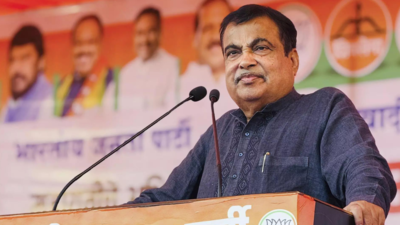
NEW DELHI: Union transport minister Nitin Gadkari expressed distress over the rising number of road accident deaths in the country, citing a lack of respect and fear for traffic laws as key factors. Speaking during Question Hour in the Lok Sabha on Thursday, Gadkari revealed that despite government efforts, road accident fatalities have climbed to 1.68 lakh this year.
“People don’t stop at red signals, don’t wear helmets. Thirty thousand people die annually because they aren’t wearing helmets,” Gadkari said, emphasizing the societal disregard for road safety. Sharing a personal account, he added, “I have been a victim myself. My leg was broken in four places in an accident when I was Leader of Opposition in Maharashtra, and I remain sensitive about this issue.”
Four pillars of road safety
Gadkari identified four critical areas to reduce road accidents: road engineering, automobile engineering, enforcement of laws, and public education. However, he stressed that public cooperation and awareness are essential for meaningful change.
“A large number of these deaths are because rules are not strictly followed. Without cooperation from public representatives, media, or society, this issue cannot be resolved,” he said. He noted that even increasing fines has failed to curb rule violations.
Government action and black spots
Highlighting government efforts, Gadkari said Rs 40,000 crores have been allocated to fix “black spots” — accident-prone areas identified through detailed project reports. “We are committed to addressing this issue, but it requires a holistic approach,” he asserted.
He also recounted an incident on Wednesday where a car jumped a red signal right in front of him, illustrating the disregard for traffic laws.
Call for parliamentary discussion
Gadkari urged Lok Sabha Speaker Om Birla to hold a separate discussion on road safety, underlining the urgency of the issue. “The government is determined to improve the situation, but it requires collective effort,” he concluded.
With road fatalities showing no signs of abating, Gadkari’s remarks underscore the critical need for stricter enforcement, better infrastructure, and a cultural shift towards respecting traffic laws.



















